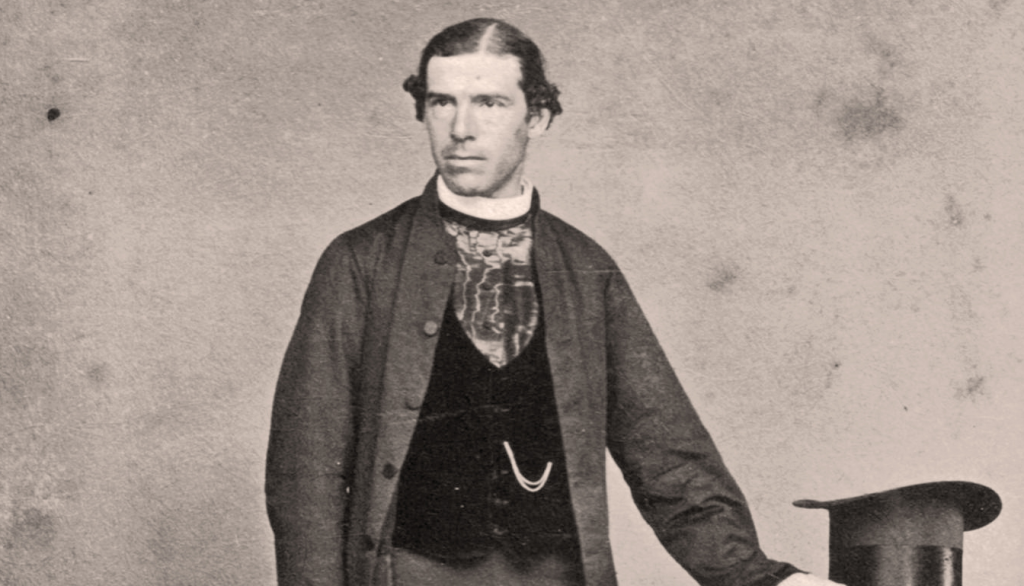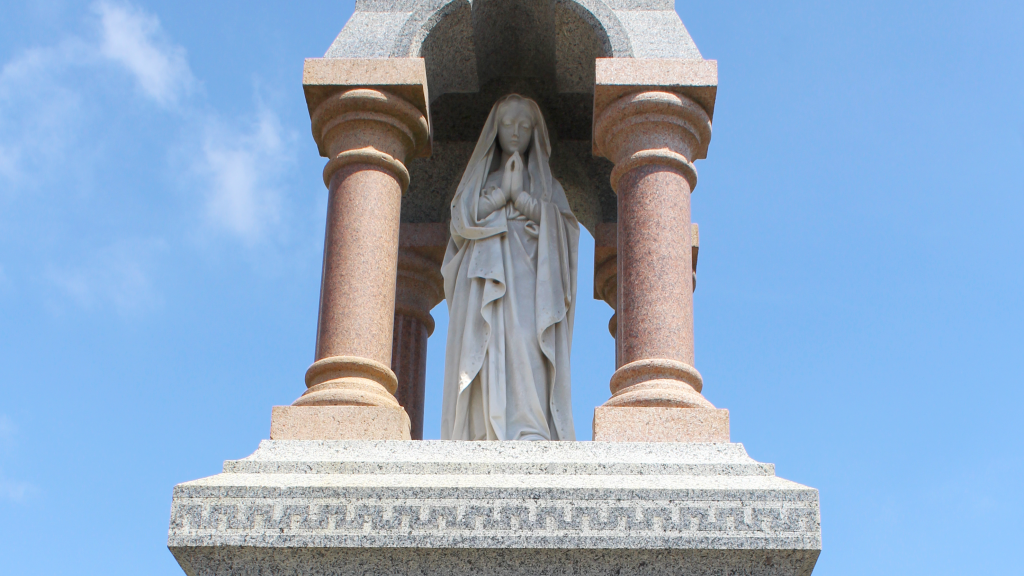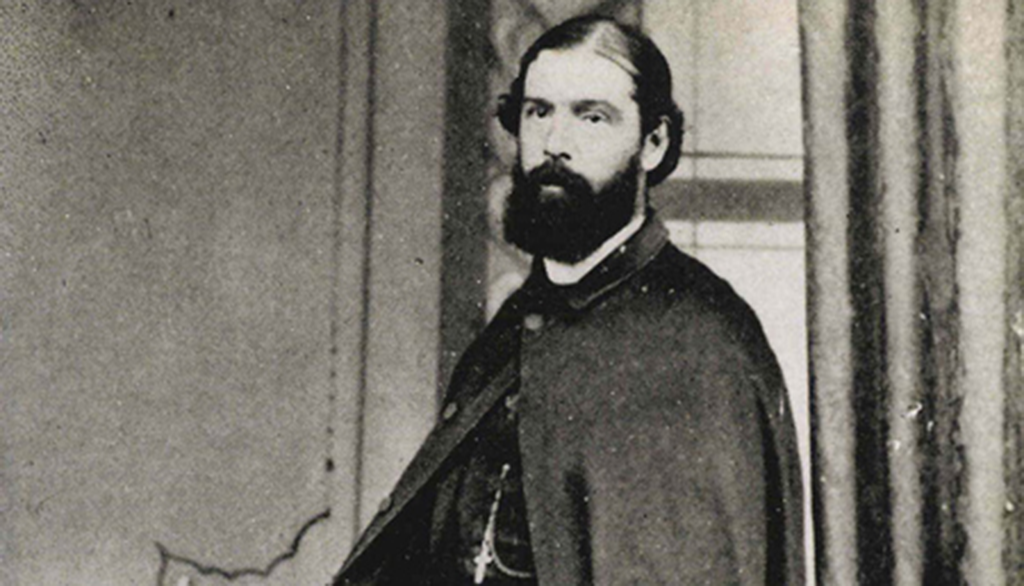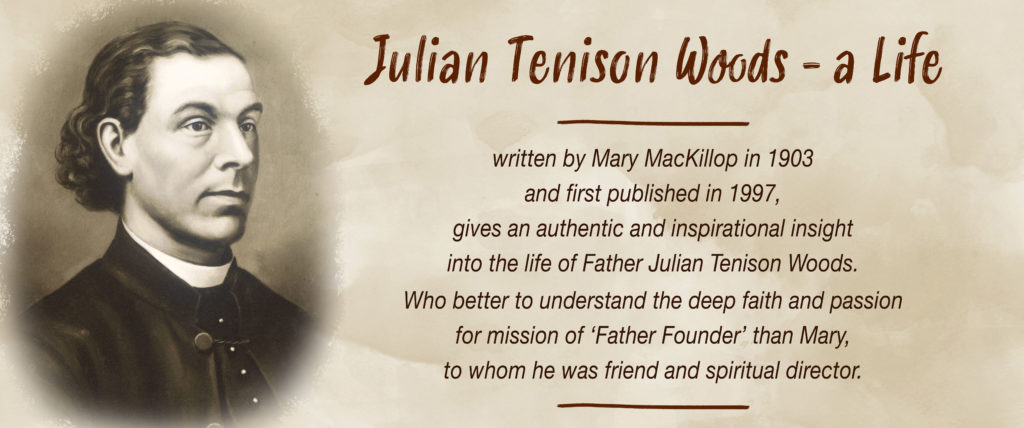What Did Julian Tenison Woods Say About Indigenous Australians?
August 7, 2021
When the ordained ministry of Julian Tenison Woods began in Penola in 1855 he soon saw the conditions under which the local Aboriginal people lived. What he observed raised concerns that remained with him for the rest of his life. Several times, on his various journeys, he wrote about the Aboriginal people he encountered.
What Would Fr Julian Say About Climate Change?
July 8, 2021 What would Fr Julian Tenison Woods have to say about climate change? Sr Josephine Mitchell imagines an interview with the scientist, priest and Josephite co-founder on the “MJ Media Network”…
What would Fr Julian Tenison Woods have to say about climate change? Sr Josephine Mitchell imagines an interview with the scientist, priest and Josephite co-founder on the “MJ Media Network”…
Interviewer: It is my great pleasure today to welcome to the program, a remarkable man who needs very little introduction, Father Julian Tenison Woods.
A zealous priest, a committed educator and a well-respected scientist, Fr Julian is probably best known as being the co-founder of the Sisters of Saint Joseph with Mary MacKillop, established in 1866 for the education of poor children. Thank you for joining us, Fr Julian.
JTW: I am very pleased to be with you.
IV: As a scientist, would you share your views on a matter of deep concern to us today – the climate emergency confronting our world?
JTW: Yes. I have been following the discussion among eminent scientists with great interest and I must say I find the situation deeply concerning.
The Compassion of Father Woods
June 7, 2021
Perhaps because of the circumstances in which Julian Tenison Woods constantly found himself, he developed throughout his life a deep sense of compassion for those in need of any kind.
Losing his mother at an early age, his long road to priesthood and subsequent rejection by Bishops, his separation from the Sisters and his broken friendship with Mary MacKillop could have made him a rather bitter man.
Yet his own deep sense of God evoked in him a compassion towards those who lived on the edges of the society of the time — whether in remote rural areas, Indigenous peoples, or those who had not had opportunities for education whom he met as Parish Priest in Penola.
The Two Mothers of Julian Tenison Woods
May 9, 2021
Julian Tenison Woods had a dream at age six of a heavenly mother. At age 15 he suffered the death of his earthly mother.
These two mothers held a special place in Julian’s life: Mary, whom he described as “my darling, sweet mother”, and Henrietta Marie St Eloy Tenison, his quiet, gentle and kindly mother whose life ended at age 46, in 1847.
The death of his mother was a profound loss for Julian.
A Fair Go
April 7, 2021
The Christian belief is that all people are equal in God’s sight.
The Christian concept of love of neighbour is starkly different from the self-seeking competitiveness we often find in today’s world. Jesus identified with the poor and marginalised people, whereas current society often highlights the rich and powerful for adulation. Jesus advocated for a society of justice, freedom and peace. It was this type of society, this concept of love of neighbour, of fairness and justice, that Julian Tenison Woods lived and promoted.
St Joseph – Fr Julian’s Example and Guide
March 7, 2021In his last circular to the Sisters of Saint Joseph two years before his death, Fr Julian Tenison Woods affectionately reminded the sisters about what was essential for their Josephite lives.
Julian exhorts the sisters to follow the example of their patron, St Joseph.
Julian Tenison Woods: A Life – Chapters 27th to 35th
February 7, 2021
Chapters 27th to 35th
There was great joy among the Sisters in Brisbane when, on 5th January [1872] their dear Father Founder arrived; yet they were saddened by his worn and haggard appearance.….The following day, he began a retreat for the Sisters, which occupied five days….[1]
The Holy See commissioned two prelates to enquire into the controversies that had arisen [in Adelaide.…It now became necessary for Father Woods to return to Adelaide and he left Sydney on the 8th of June … after an absence of eleven months… [2]
Julian Tenison Woods: A Life – Chapters 24th to 26th
December 7, 2020
Chapters 24th, 25th & 26th
Father Woods wrote to Sister Mary:
Bathurst 19.8.71
Here I am arrived at Bathurst, after a very tiresome journey… The Bishop is most kind, too kind in fact, and has a fine lot of work for me to do…[i]
